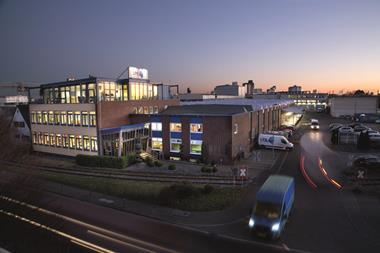IT IS gratifying in this era of increased belly capacity to report that a freighter airline is not just thriving but planning a major boost to its fleet.
In November, Canadian carrier Cargojet will be adding two B767-200Fs and four B767-300Fs to bring its fleet up to 22 aircraft. By January it will be operating four B767-300ERs, four B767-200s, nine B727s and five B757s.
Admittedly, there are special circumstances. The expansion is a result of Cargojet winning the contract to provide all the freighter lift for Canada Post, as well as for Purolator, Canada Post's courier company.
Currently this lift is provided by Kelowna Flightcraft, which has two DC-10Fs and 13 B727Fs flying for Purolator. What will happen to these aircraft once they are no longer needed is not known.
The logic of having Cargojet operate the network is not hard to see. Jamie Porteous, executive vice-president of the carrier, reckons it already operates 50 per cent of overnight domestic freighter capacity in Canada, and he says that with the Canada Post contract that could rise to 90 per cent.
Canada Post wanted high reliability, lower costs and, crucially, more flexibility. "Letter volumes are declining, while the package business is growing, so they didn't want to be committed to fixed amounts of capacity for either," says Porteous.
By combining mail volumes with its existing overnight courier traffic, Cargojet was able to offer Canada Post the deal it wanted.
Cargojet was born out of the cargo ambitions of two passenger airlines. One was Royal Airlines of Montreal, which stepped into the void left by Air Canada when it exited the domestic freighter business in the mid-1990s.
Royal then became part of Canada 3000 in 2000, and Porteous and Ajay Virmani, president and chief executive (CEO) of Cargojet and a third person (now retired) set up a 50/50 joint venture with the new owners to do overnight express and also fill the bellies of Cargo 3000's more than 50 passenger aircraft.
Then came the terrorist attack on the World Trade Center in New York on September 11, 2001 and in its aftermath Canada 3000 abruptly went bankrupt.
"Fortunately, they were not operating the freighters: we had subcontracted that to other parties," adds Porteous. The three founders were able to recreate their business as Cargojet in February 2002. "It helped that aircraft values had dropped a lot post-9/11, especially for B727s."
The goal of the new company was simple - to offer the many smaller express operators in Canada a neutral network serving the largest 13 cities of Canada, and so enable them to compete with the big integrators.
"We are like a less-than-truckload operator in the sky - a co-loading airline," enthuses Porteous.
Read Peter Conway's full interview in Air Cargo News 14 July – Issue No.781










